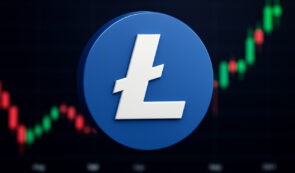Supreme Court Could Limit Trump Tariffs, Strengthening Congress’s Role in Trade Policy
- U.S. Supreme Court may strike down Trump's emergency tariffs via 7-2 ruling, with conservative justices joining liberals to curb executive overreach. - Ruling would reinforce "major questions doctrine," requiring congressional approval for policies with vast economic impacts like trade measures. - Invalidating tariffs could trigger $90B refunds, strain federal budgets, and reshape congressional-executive power dynamics in economic governance.
The U.S. Supreme Court’s forthcoming ruling regarding former President Donald Trump’s use of emergency powers to implement broad tariffs has taken an unexpected direction, with some experts now anticipating that the Court’s most conservative members may join their liberal peers in overturning the tariffs. The case, which centers on Trump’s application of the International Emergency Economic Powers Act (IEEPA), has ignited a heated discussion about the limits of presidential power and Congress’s constitutional authority over trade, according to a
The controversy revolves around Trump’s declaration of four separate national emergencies to justify tariffs ranging from 10% to more than 100% on goods from countries such as Canada, Mexico, and China. Opponents—including states led by Democrats and small business owners—contend that IEEPA does not permit tariffs designed to generate revenue, and that trade deficits do not meet the law’s standard of “unusual and extraordinary threats,” as reported by
During the November 5 oral arguments, justices questioned the administration’s legal justification, with conservatives like Neil Gorsuch and Amy Coney Barrett voicing doubts. Gorsuch cautioned that allowing the tariffs could lead to unchecked executive power, and Barrett challenged whether a global trade deficit truly constitutes an emergency. The administration’s attorney was further pressed after admitting that a future president could use IEEPA to ban imports of gasoline vehicles under the guise of a climate emergency, according to an
Experts believe the Court may issue a decisive 7-2 decision against Trump, with conservative justices Clarence Thomas, Samuel Alito, and Gorsuch potentially joining the liberal bloc to limit the tariffs. James Lucier of Capital Alpha Partners observed that even if Chief Justice John Roberts and Justice Brett Kavanaugh support the administration, the verdict would likely still curtail presidential authority. Such a ruling would strengthen the “major questions doctrine,” which requires Congress to explicitly approve policies with significant economic impact.
The implications go beyond trade policy. If the tariffs are struck down, nearly half of the $195 billion in tariff revenue projected for 2025—about $90 billion—could be subject to refunds, worsening the national debt and future deficits, according to a
Trump has described the case as a matter of “life or death” for national security, arguing that tariffs protect the U.S. from unfair foreign competition. Nevertheless, legal experts and critics argue that these tariffs increase costs for American consumers and disrupt international markets. Senate Minority Leader Chuck Schumer labeled them a “hidden tax,” and business organizations claim they hinder economic progress.
If the Court rules against the tariffs, it would represent an unusual limitation on Trump’s potential second-term plans and establish a precedent for future presidents. As Justice Department attorneys defend the tariffs as vital to foreign policy, the Court’s decision could reshape the division of economic authority between Congress and the executive branch.
Disclaimer: The content of this article solely reflects the author's opinion and does not represent the platform in any capacity. This article is not intended to serve as a reference for making investment decisions.
You may also like
BlackRock Clients Offload $127M in Bitcoin Holdings
Litecoin Price Rebounds, Closing in on $100 as Network Activity Rises

Zcash Explodes 85% in a Week — Analysts Eye $1,000 Target Next

Cardano Faces Whale Sell-Off as Midnight Network Activity Skyrockets
